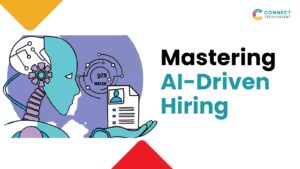Today technology plays a very crucial part in every industry. This has resulted in a boom in IT jobs and technology skills are the most in-demand skills across the board. Technology also keeps evolving and it becomes very important that one upskills themselves and is up to date with the latest changes to stay relevant in their industry. In this blog, we discuss the top 6 technology skills that one should learn to advance their career.
These technical skills in many cases form the core functions and in other cases enhance or strengthen the core functions. For example, technology skills in cloud computing make a system or network administrator eligible for a range of technical positions in the cloud computing setup.
What Are Technology/Technical Skills?
Before we ease into IT skills in demand that will make one relevant in today’s industry, let’s discuss what the terms like technology or technical skills mean.
A good technical skills definition can be found on indeed.com. This technical skills definition states that “Technical skills are qualities acquired by using and gaining expertise in performing physical or digital tasks”.
This expertise in using any non-intelligent machine like a computing device, or a network of such devices is what we call a technical skill. These skills have further branched out into skills in hardware and skills in software technology.
Hardware technology mostly has to do with the devices that enable communication or interaction between a human and a computing device or among two or more computing devices. It is technology at a physical level, those machines that you can see, touch, and feel. Hardware devices like display units, processors, network switches, commodity hardware, and data center infrastructure are good examples. Skills in this domain are mostly related to networking. Networking, distributed computing, data center architecting are some of the in-demand skills in this sector.
Software technology is everything to do with running tasks on the hardware machines. Actual real-world tasks are lifted and shifted to the digital form. A great example is that of the transition of written communication in the form of letters to the digital form of emails. Skills in this domain include analytical, programming, design, and tech management skills.
How to Build Technology Skills?
So how to build these tech skills? Technology skill today is synonymous with software skills like network programming, software development, cloud computing, and the like. Technology skills unfortunately cannot be gained overnight. Sound knowledge of computing concepts is required before you take the plunge. With the proliferation of technical courses online, this has become easier than ever before. A good technical course will always build on the core basics of computing before pushing through advanced technical skills. For those who are just starting into this field, looking for courses that emphasize building foundational skills would be a good starting point. With the basics sorted, navigating advanced topics becomes easier.
One can pick up technical skills from the comfort of home or the workplace. Online education material or live virtual classes, allow anybody to upskill anytime from anywhere. Virtual machines, simulators, and online programming environments are also available that helps one build and test small applications.
Examples of Technology Skills
Technology skills differ from industry to industry. Now that is obvious, isn’t it? Let’s look at some technology skills examples in various industries.
- Software Development
Programming skills and knowledge of programming languages like Python, Java, JavaScript, and in some cases C and C++ count as technology skills in the software development industry. Software development also deals with data persistence or what we call databases. Skills in working with database technologies like relational databases, NoSQL databases, cloud databases are also important skills in the software development domain.
- Data Analytics
Skills in tools that work on big data like Hadoop, Kafka, Flume along with programming skills in languages like Java or Scala make up for data analytics skills. Knowledge of data analysis and spreadsheet-based business intelligence tools like Excel, Tableau, Qlikview become relevant.
Data analysis also requires quite a bit of programming skills in languages like Python and R, which are well tuned to tasks related to data handling.
- Cloud Computing
Cloud computing skills mostly translate to the knowledge of working with cloud tools that help enterprises to keep their internal and external services running over the internet. Skills in cloud computing suites like Amazon Web Services, Google Cloud Computing, or Microsoft Azure become relevant.
In the sections that follow we shall list down the top 6 technology skills relevant in 2022 and elaborate on each one of these.
Top 6 Technology Skills in Demand in 2025
The technology skills that we mention below are essentially a grouping of technical skills that are relevant to the IT industry. In that sense, these are skills sets that are important for career progression. So, here are the top technical skills employers look for.
1. Artificial Intelligence (AI) and Machine Learning
The world is moving to machines that can do more than simplify tasks. We are looking to replace humans with machines when it comes to repetitive mundane tasks. Machines are preferred over humans for various reasons like high availability, high productivity, error-free work, and more.
Technical skills in the Machine Learning domain mostly revolve around the ability to create mathematical models for real-world problems and programming around these models. Artificial Intelligence in particular calls for skills in tools that enable seamless human and machine interaction.
Programming skills that are a must in this domain include Python, R, Java. Several software libraries are available today that can be used in any one of these programming languages to develop custom-built AI and ML applications.
Skills like Natural Language Processing in conjunction with programming languages like Python are essential to building or integrating a chatbot.
2. Data Science & Analytics
Data Scientist is one of the leading sought-after positions today in the IT industry. Data Science is again mostly related to drawing mathematical and statistical models of real-world problems. These models then can be built with programming languages like Python, R. Using these models, data scientists help businesses analyze the present and predict the future. Data Science and analytics help the management of any business, with rational decision making.
Data Science and Analytics skills start from basic business intelligence tools like Excel, Power BI, or Tableau and go all the way up to tools like SAS, Apache Spark, Scikit-Learn, or TensorFlow.
3. Cybersecurity
Cybersecurity is a rapidly emerging field with due importance being given to protecting digital assets like business-critical intellectual property. The essential skills in Cybersecurity include tools that enable, Data Security, Network Security, Threat assessment, Cloud security, Identity management, and Endpoint Security.
While programming skills take a back seat here, it is good to have skills when integrating various security tools with application software. Some of the top cybersecurity tools are
Wireshark, John the Ripper, Nexpose, Kali Linux, TCPDump, Bitdefender among many others. Experience in using these tools to ensure security at a network as well as endpoint level is essential.
4. Cloud Computing
Virtually the entire business world is moving to the cloud. This will be the future destination for all businesses. Cloud computing demands a mixed bag of skills from Networking, Distributed computing, Cybersecurity, and Cloud infrastructure domains.
Private cloud players like AWS and Google Cloud have become so omnipresent that skills in these technologies are indispensable. An AWS, Microsoft, or Google certified cloud computing practitioner, associate, or architect is in great demand in today’s cloud-heavy market.
Cloud environments like AWS, Google Cloud, or Microsoft Azure build on networking and network security skills by offering cloud infrastructure along with tools to build, manage and secure these virtual assets. Programming skills come into relevance when customizing these cloud tools as per business or client requirements.
5. Robotic Process Automation
Robotic Process Automation is the robotization of mundane and repetitive business tasks and entire operations, particularly that involve very less cognitive abilities. Programming is one essential skill required in RPA. In fact, the role is actually a developer role, which does not involve software development but involves writing code that helps create interfaces between various business applications and automate frequent tasks. In most cases, RPA involves design and coding within an automation software also called RPA bots. Programming skills in Java, JavaScript, Visual Basic, Python, and experience with tools like UIPath, Blue Prism, or Pega are essential for any RPA developer.
6. Technical Program Management
With the accelerated adoption of technology and the rapid churn in the use of technology in business, a need for program management professionals with technical skills arose. Technical program managers are essentially project managers with a technical spin. Technical Program managers oversee every aspect of a program or a project. From defining program goals and requirements to approving test results of the final product, a technical program manager like a project manager provides direction, schedules resources, and timelines, and works with engineering to design and establish product architecture for businesses.
This calls for knowledge of technical skills like programming, cybersecurity, IT and networking, and cloud computing. Technical Program managers also need to possess people management and project management skills.
Technology skills need to be updated continuously
Technology will always undergo rapid changes. Today’s technology will become obsolete in less than 5 years or so. While businesses will continue to look for fresh talent, for one to be relevant in the industry, he/she will need to constantly update their skill set. While the foundational knowledge remains the same, one needs to keep themselves updated with the latest in the business. The need to keep a tab on the latest technology trends in the market and pick the right tools to upskill in becomes critical
To give an example of how rapidly current technologies are being adopted, let’s refer to a study done on cloud computing adoption and the projections into the future.
The graph below shows a clear growing trend in the adoption of cloud computing.
It is not easy to keep up with the latest technology, but there are ways to stay on the technology for most of the time. Here are some best practices that can help one stay abreast of the latest in technology.
- Prioritize learning: Devote dedicated time to learning sometimes in a week, so one can take stock of the latest in technology. Designating one day in a week to read up on the latest trends in the market or going through tech talks, product launches among others can help to keep up with the latest technology trends
- Get a mentor: A mentor in the tech domain can help one keep up with the latest in technology. Mentoring is a great way to get hands-on experience in the latest tech in the industry.
- Look at Start-up businesses: Typically start-up businesses tend to adopt the latest and quickest available on the technology rack. Following their social media channels can give you an idea of the latest in the industry.
- Attend industry tech events and conferences: If possible, make time for industry tech events and conferences. These are great places to not only keep a tab on the latest in technology, but also for networking and increasing one’s reach.
- Follow Tech influencers: Tech influences are available by the dozen today on social media channels like Youtube and Facebook or even TED talks. It is their core job to talk about the latest in technology trends.
Partner with Connect Tech+Talent
Connect Tech+Talent, based out of Austin, Texas with over 27+ years of experience in the field of hiring tech talent provides flexible staffing solutions such as permanent, contract, temporary, remote & project-based hiring to meet the specific needs of many organizations.
Talk to a Connect Tech+Talent hiring consultant today to find your dream job.




